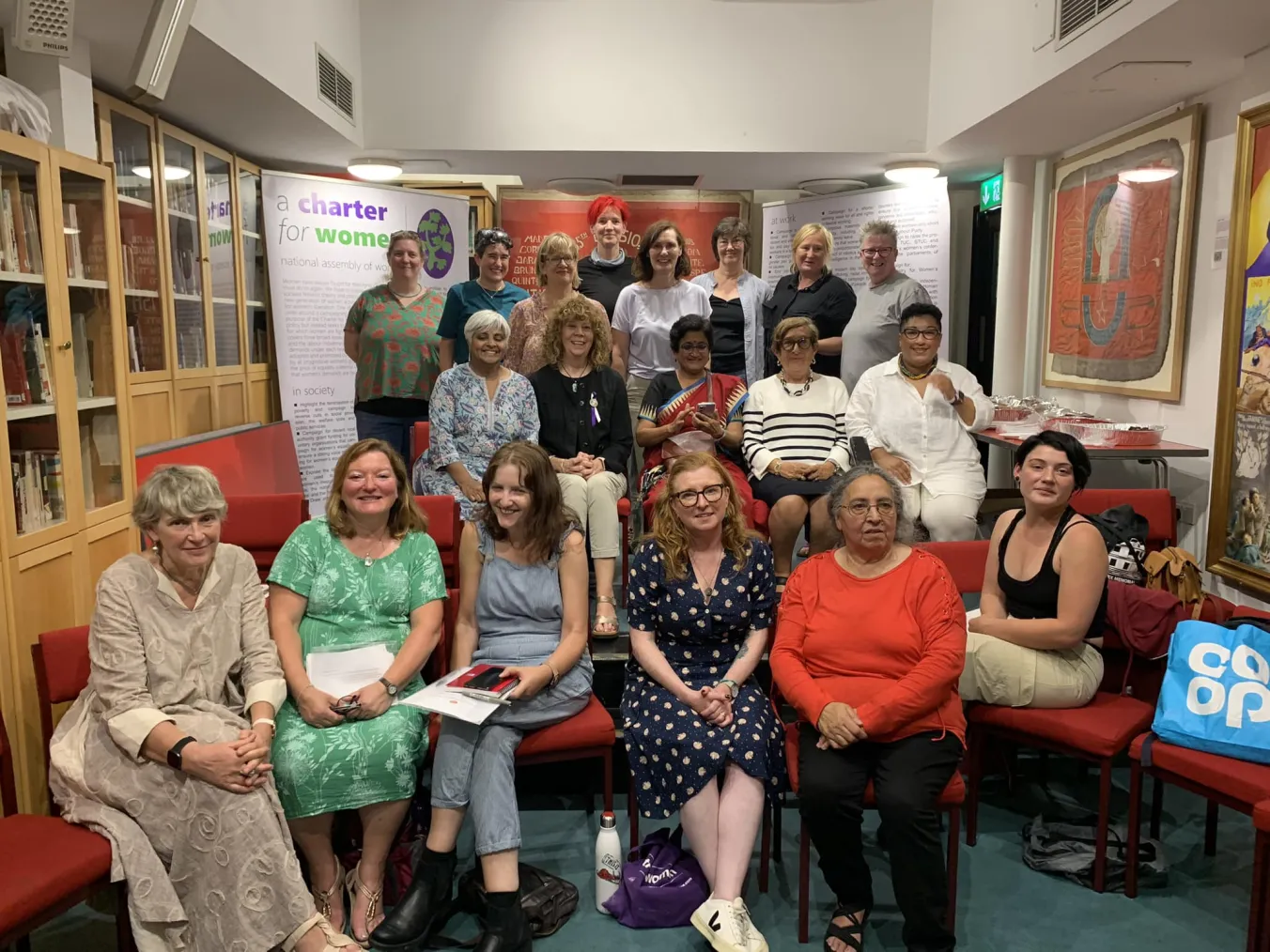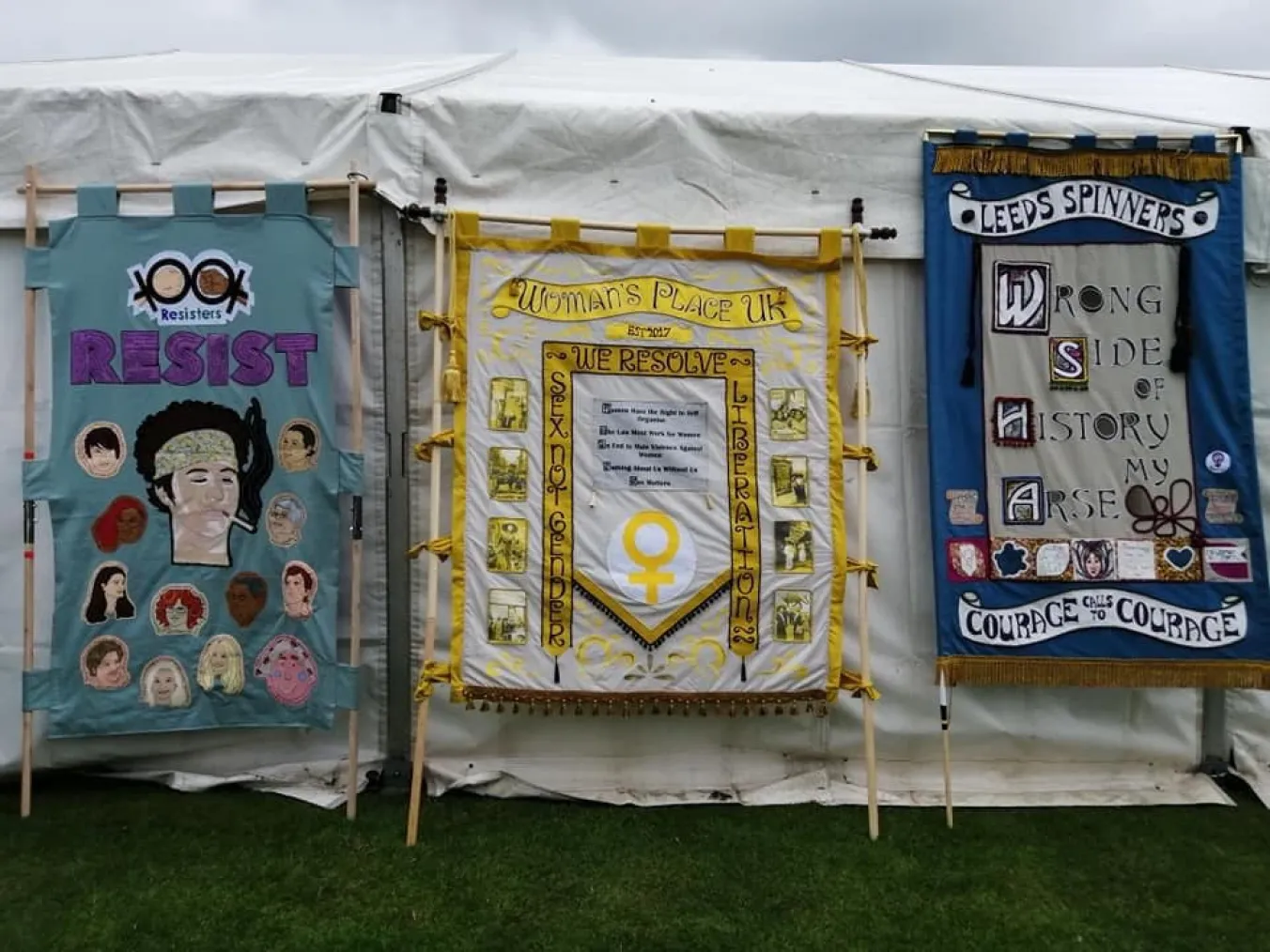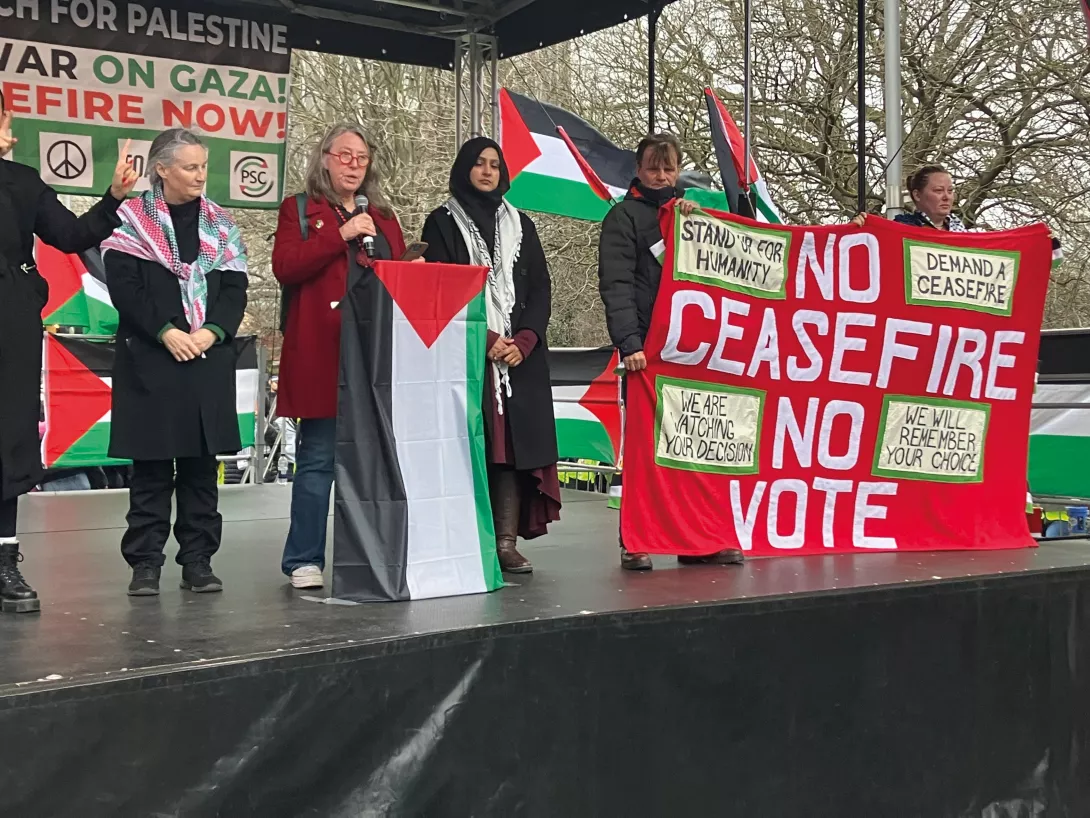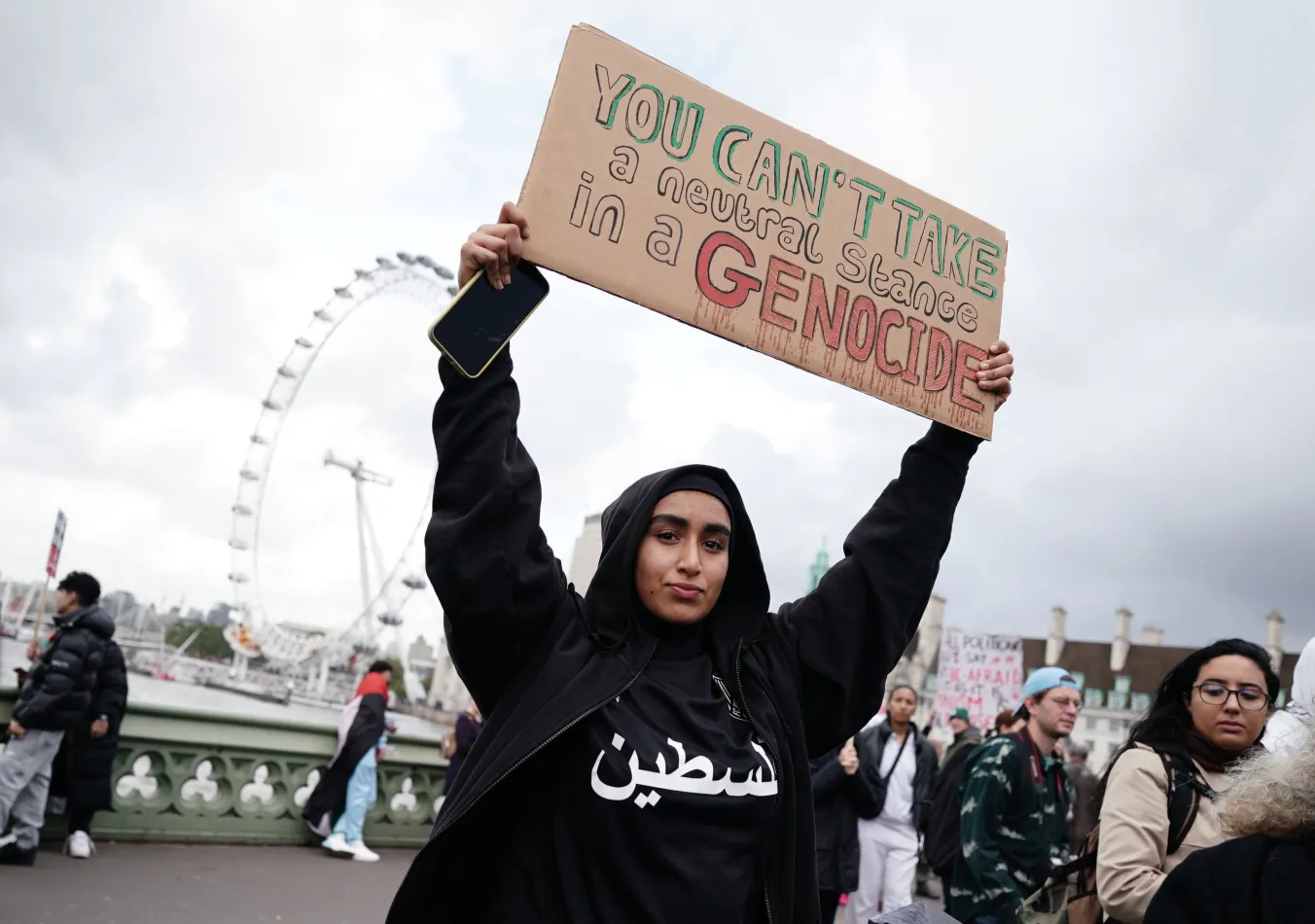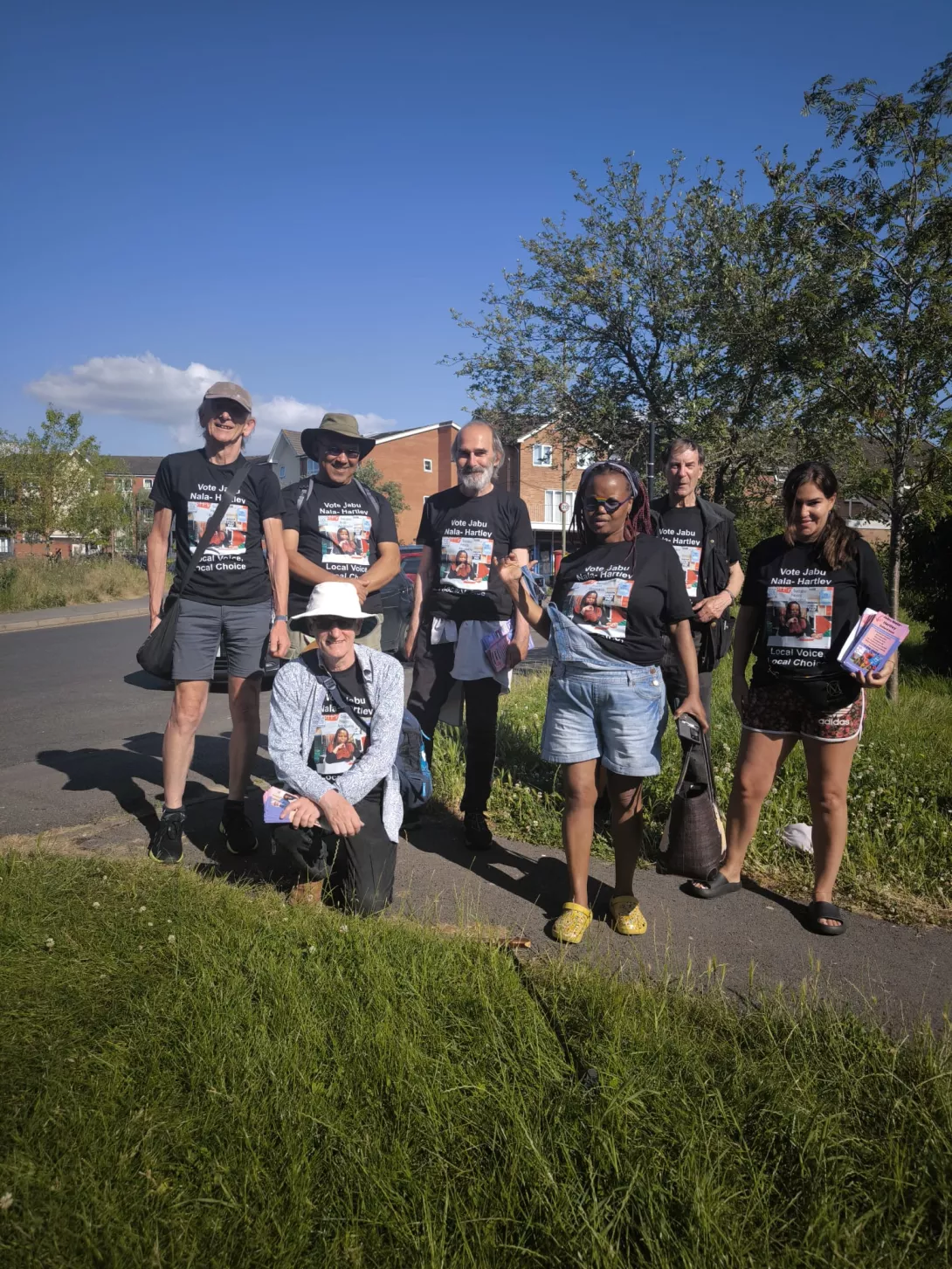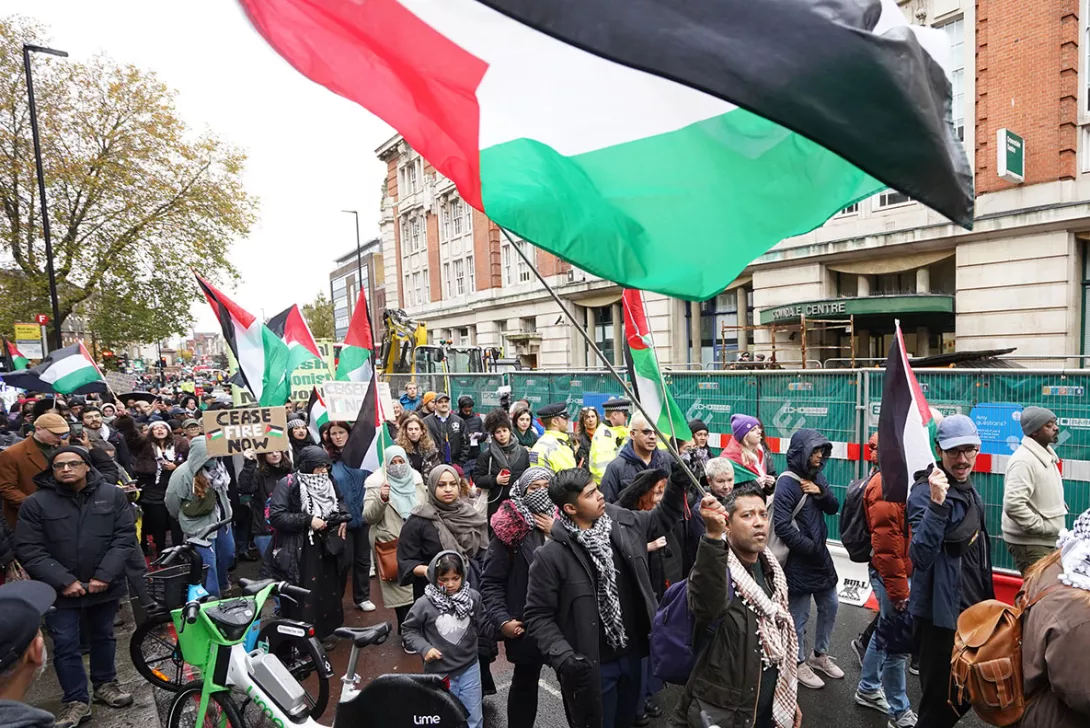
ON NOVEMBER 27, Oxford City Council unanimously voted to support calls for a full, immediate and permanent ceasefire in Gaza and for an end to Israel’s collective punishment of two million Palestinians through its bombing campaign, siege and mass displacement. In doing so, the council committed to lobbying Oxford East’s Labour MP Anneliese Dodds, the Labour leader Keir Starmer and the Prime Minister Rishi Sunak to do so too.
The motion passed by the council went beyond this immediate demand of the Palestine solidarity movement too. It recognised that the siege on Gaza is nothing new, with the strip having been subject to a 16-year-long illegal blockade. It acknowledged that Israel operates a system of apartheid and condemned violence in the West Bank commited by Israeli forces and settlers. It called for Palestinian prisoners in arbitrary military detention to be able to access an independent, non-military justice system in addition to the unconditional release of hostages Hamas took in its horrific attacks of October 7.
Other local councils have taken similar steps as the public mood in Britain has swung firmly behind calls for a ceasefire — but there is a particular significance in Oxford.
First, because Oxford has long-standing links to Palestine. Since 2019, the city has been twinned with Ramallah. As a result of the motion, the mayor of Ramallah will be invited to address a meeting of Oxford City Council to discuss the ongoing situation in the West Bank, allowing councillors and the public to hear first hand what is happening on the ground, and how we can stand in solidarity with the Palestinian people.
Second, because of Oxford’s position at the epicentre of the rebellion within Labour over Starmer’s position on Gaza. Two councillors in Oxford — Shaista Aziz and Amar Latif — were among the first in the country to leave the Labour Party over the issue, sparking a wider wave of resignations.
Since Starmer’s infamous comments on LBC, which many interpreted as an endorsement of Israel’s cutting off of fuel, water and food to Gaza — a move rightly condemned as collective punishment by UN officials and aid agencies like Oxfam — a total of 10 councillors in Oxford have torn up their Labour membership cards and now sit as independents. Their principled decisions have meant that Oxford has gone from having had a Labour super-majority for over a decade to now being in no overall control.
At the time of the resignations, the Labour leader of Oxford City Council, Susan Brown, said: “Labour fully supports Israel’s right to defend itself from the indefensible actions of Hamas, to rescue hostages and protect civilians in line with international law.” Like Labour’s national leader, she stopped short of calling for a ceasefire.
How then, did we move from there to the city council unanimously backing the demand for a ceasefire? There are two important lessons the left can draw.
The first lesson is that the public mood and the strength of social movements matter. In the last six weeks, the British public has put itself squarely behind the demand for a ceasefire and stood firmly in solidarity with the people of Gaza. That is evident through opinion polls which have shown that the overwhelming majority of the public support a ceasefire.
But more importantly it is evident through the unprecedented campaign on the streets of Britain in opposition to Israel’s war crimes. Week after week, hundreds of thousands of people have poured onto the streets of London calling on the government and our political leaders to demand an end to the bombardment.
That solidarity movement has been ever-present in Oxford too. Oxford’s four main mosques issued a call for Anneliese Dodds to get behind calls for a ceasefire. Marches, demonstrations, vigils and creative actions have kept the issue at the forefront of people’s minds and on the local political agenda. These mobilisations have seen people join demonstrations for the first time in their lives, such is the scale of the disgust at the situation in Gaza as well as both the British government and Labour Party’s complicity in it. Many of them were co-ordinated by Help the World Oxford — a local campaign group led by young Muslim women, alongside groups like the Palestine Solidarity Campaign.
These public displays of solidarity made their way into the council meeting this week too. The public gallery was packed with Palestine solidarity activists. Councillors arriving at the meeting had to pass through a picket of campaigners calling for them to support the motion.
This public pressure has been key to shifting the narrative on the issue in Britain, and forcing the hand of politicians.
The second lesson stems from how the motion came about. The motion was initially proposed by Paula Dunne — a councillor from the newly formed Oxford Socialist Independents Group (made up of ex-Labour members). The text was then amended by the Green Party, following intensive negotiations with the proposers, the Independent Group (another group who resigned from Labour), and the Liberal Democrats.
While each of these groups come from different ideological persuasions and hold a range of views on the origins of and long-term solutions to the suffering currently being inflicted on Gaza, we were able to come together behind a series of core demands, most importantly the call for a full, permanent ceasefire and to provide support for Jewish and Muslim residents of our city facing heightened incidents of anti-semitism and Islamophobia.
Getting the council’s backing was only possible as a result of this negotiation, and shows that on major issues — and there are few as major as Israel’s brutal assault on Gaza — forging alliances between Greens, socialists, social democrats and liberals is possible and can be key to securing the change those of us on the left want to see.
The left should take heed of these two lessons, because ultimately it was what led to getting Oxford City Council to vote to put pressure on political leaders to do what they can to secure a permanent ceasefire, vote to stand in solidarity with the people of Palestine, vote to reject war crimes, collective punishment and mass displacement, vote to support our Jewish and Muslim residents, vote for human rights, vote for peace and vote for justice.
Chris Jarvis is leader of the Green Party on Oxford City Council.


